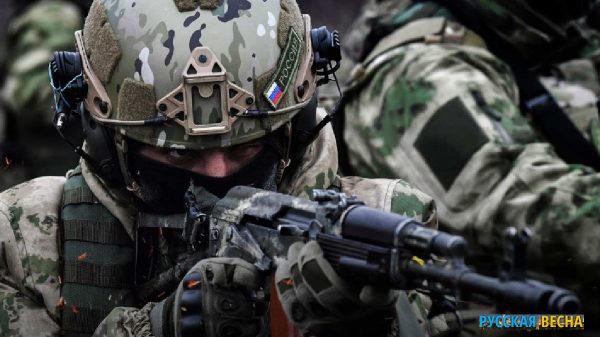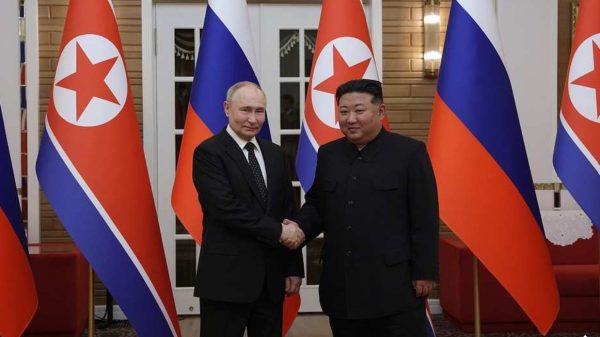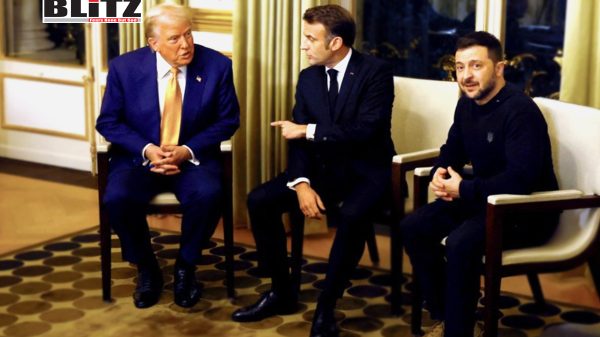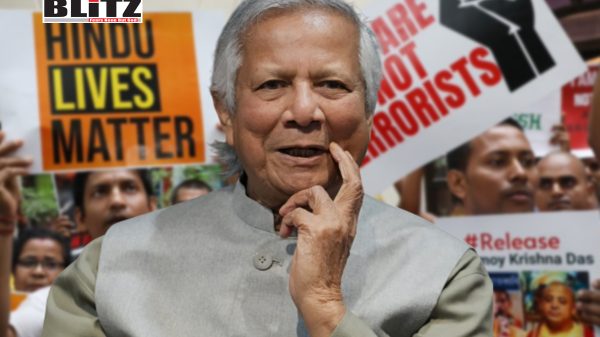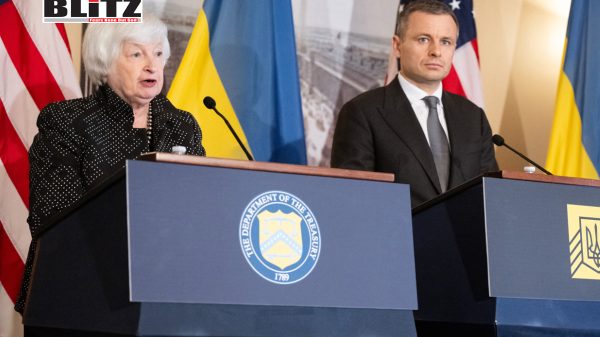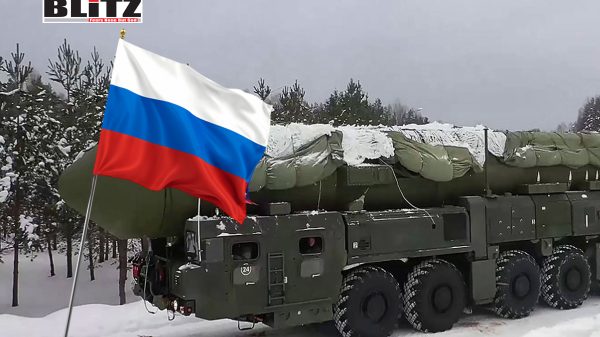US sanctions Indian companies over alleged support to Russian military
- Update Time : Sunday, November 3, 2024
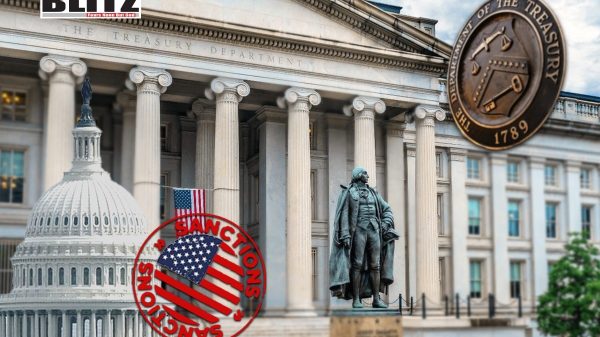
The US government has announced sweeping sanctions targeting 19 Indian companies and individuals for allegedly supplying goods and components that Russia reportedly uses in its ongoing war against Ukraine. This latest sanctions package, introduced on October 30 by the US State Department, Treasury, and Commerce Department, also targets nearly 400 entities and individuals from various other countries. The sanctions aim to curb the flow of “critical components” to Russia, specifically dual-use items-technologies that have both civilian and military applications-that may be instrumental in Russia’s military efforts.
The US State Department announced that all targets are being designated pursuant to Executive Order (E.O.) 14024, which authorizes sanctions in response to specific harmful foreign activities conducted by the Government of the Russian Federation.
According to the State Department’s release, two prominent India-based firms-Ascend Aviation and Mask Trans-were cited for allegedly providing aviation components to Russia. Some of these components were reportedly of “US origin.” Sanctions were also imposed on TSMD Global and Futrevo, two Indian firms identified for operating within Russia’s technology sector. Both firms allegedly provided Russia with high-tech goods, including central processing units (CPUs), electronic circuits, and other components that fall under the US and European Union’s BIS CHPL Tier 1 and 2 export control classifications.
TSMD Global is reported to have supplied around $430,000 worth of controlled items to Russia, including shipments to ElektronKomponent and several US-designated Russian companies, such as VMK, Alfa LLC, and AvtoVAZ. These shipments occurred from July 2023 through March 2024. Futrevo, on the other hand, reportedly supplied Russia with over $1.4 million worth of CHPL items, including electronic components to SMT-iLogic, a manufacturer connected to Russia’s Orlan drone production, from January 2023 to February 2024.
The sanctions package also targets entities in several other countries, including China, Malaysia, Kazakhstan, Kyrgyzstan, Switzerland, Thailand, Türkiye, and the United Arab Emirates. While the majority of the sanctioned entities are Chinese, companies from across the world have been implicated for allegedly bypassing sanctions to supply critical components to Russia’s defense sector. For example, Malaysian firms were sanctioned for allegedly providing aviation and technology parts to Russian partners.
India’s involvement in the sanctioned list, however, has garnered particular attention. Notably, this is not the first time Indian companies have been targeted by US sanctions amid the Russia-Ukraine conflict. In July, the US blacklisted three Indian shipping companies accused of transporting Iranian drones to Russia, though Moscow has denied using Iranian weaponry in Ukraine.
The term “dual-use” is key to understanding the US’s concern over these shipments. Dual-use items are those with both civilian and military applications, making it challenging to ascertain their end-use. Many of the items in question, such as circuit boards, ball bearings, and electronic components, are commonly used in both commercial and defense products, from consumer electronics to complex weapon systems. As such, while the US Treasury Department alleged that certain Indian companies were supplying dual-use circuit boards, ball bearings, and even milling machines, it did not directly assert that these parts were definitively used in military applications. Nonetheless, given Russia’s continued reliance on imported components amid its restricted access to Western technology, the US is taking a preventive stance to limit Russia’s potential military advantages.
India’s position in the global arena has been complicated by the Russia-Ukraine conflict. New Delhi has historically maintained a neutral stance, opting for diplomacy rather than sanctions to address the conflict. India’s close ties with Moscow, stemming from decades of defense and trade relations, have put it in a delicate position. Even as the US strengthens its strategic and economic partnership with India, particularly as a counterbalance to China in the Indo-Pacific region, sanctions on Indian entities could introduce friction.
India’s Foreign Ministry has not yet commented on the sanctions. However, previous instances of US sanctions targeting Indian entities were met with a measured response, as New Delhi has often prioritized its independent foreign policy. Indian officials have repeatedly emphasized the importance of maintaining strategic autonomy, especially in its relationships with both Russia and the United States. India has also been vocal about its continued reliance on Russian energy supplies, as well as defense imports, which play a crucial role in its security posture.
In response to these sanctions, China’s embassy in Washington condemned the US’s actions, calling them “illegal and unjustifiable.” An embassy spokesperson, Liu Pengyu, described the sanctions as a “typical double standard,” accusing the US of attacking China’s normal trade relations with Russia while simultaneously supplying military aid to Ukraine. This sentiment echoes concerns that US sanctions are inherently selective, often favoring its geopolitical objectives over consistent application of international standards. China’s rebuke highlights the challenge of balancing sanctions enforcement with the complexities of global trade, particularly when economic ties between sanctioned countries and the US’s allies are involved.
The sanctions spotlight a complex issue: the global supply chain’s entanglement with military applications. As US and European manufacturers seek to prevent their technologies from reaching Russian defense systems, entities in third-party countries often serve as intermediaries, sometimes unknowingly facilitating the transfer of restricted components. In this case, the US government’s targeting of companies across several nations underlines the extensive networks that have allowed Russia to circumvent sanctions, particularly in its military sector.
The sanctions have implications for companies worldwide, especially those supplying high-tech components and dual-use items. Firms must now navigate increasingly stringent compliance requirements to ensure that their goods do not inadvertently support sanctioned entities. Companies caught violating these sanctions face severe penalties, ranging from financial restrictions to reputational harm, which may impede their future access to Western markets.
As the global landscape shifts, India faces a balancing act in maintaining its strategic autonomy while fostering partnerships with the US and Russia. The imposition of sanctions on Indian companies underscores the complexity of this position. US sanctions are unlikely to deter India’s broader engagement with Russia, given the long-standing ties and interdependence in defense and energy. Nevertheless, Indian companies will need to adopt stricter due diligence measures to avoid entanglement in international sanctions.
India’s response to this sanctions wave will be telling of its future diplomatic maneuvers. As India and the US deepen their ties, particularly through platforms such as the Quad, economic sanctions could serve as a sticking point. For Washington, maintaining a balance between enforcing sanctions and preserving relations with key allies, such as India, will be critical in sustaining a unified stance against Russia’s actions in Ukraine.
With an increasing emphasis on cutting-edge technology and dual-use goods in defense applications, the challenge for international regulatory bodies lies in creating transparent mechanisms that prevent misuse without hindering legitimate trade. As the world watches how India and other sanctioned nations respond, the broader implications of the US’s expansive sanctions strategy will unfold, further shaping the contours of global alliances and trade policies.



